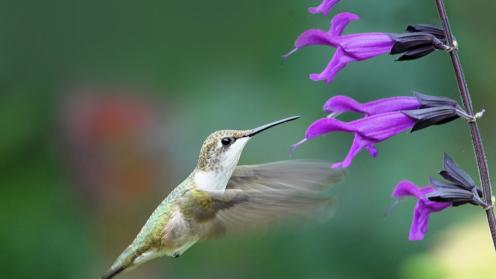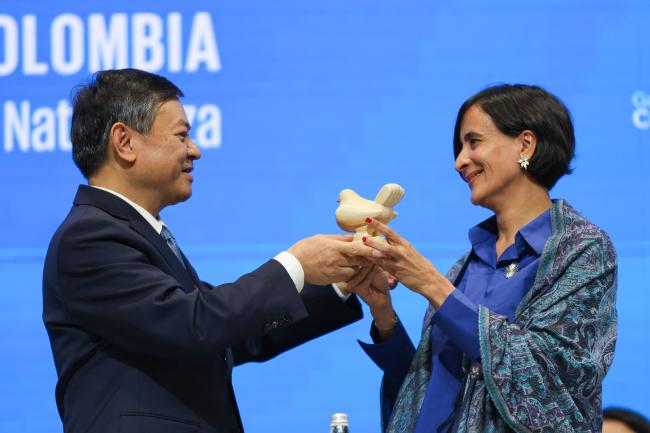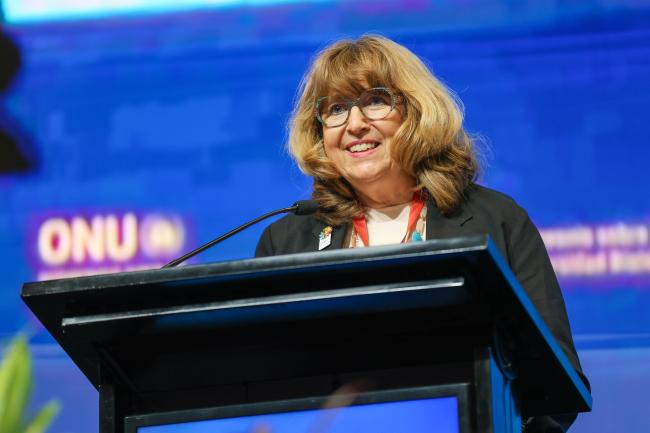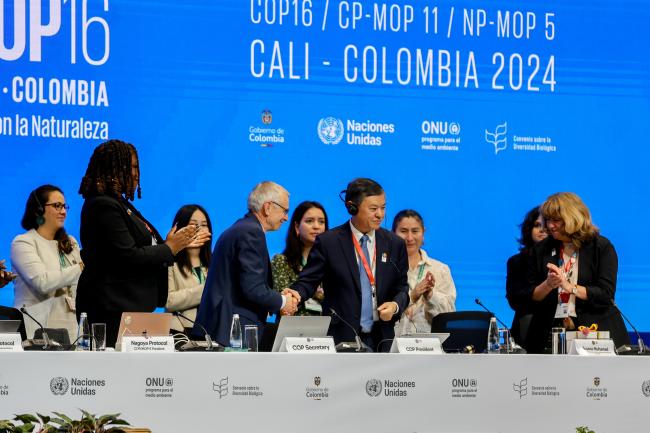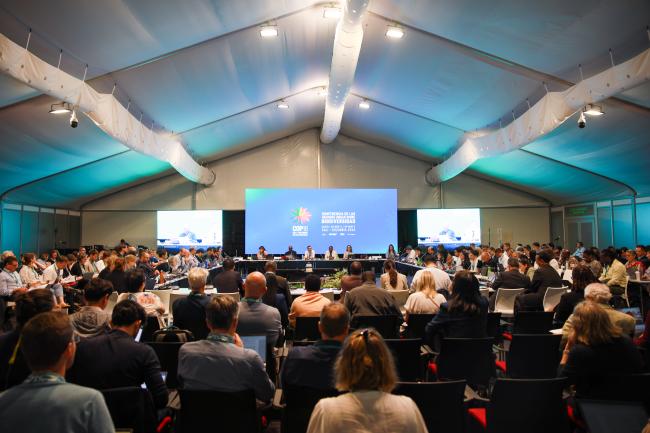“Cali 2024 could be a light in the very dark world that is unfolding,” Susana Muhamad, Minister of Environment and Sustainable Development of Colombia said at the opening of the largest-ever UN Biodiversity Conference. Emphasizing the values of multilateralism and mutual understanding, she declared that the 16th meeting of the Conference of the Parties (COP 16) to the Convention on Biological Diversity (CBD) and the associated Meetings of the Parties to the Protocols would be the “People’s COP.” The People’s COP must engage all of society and strengthen the role of Indigenous Peoples and local communities (IPLCs), the stewards of the world’s biodiversity, she said.
Want to dig deeper into today's talks? Read the full Earth Negotiations Bulletin daily report.
Following Sunday’s colorful opening ceremony, delegates shifted immediately into negotiation mode, as opening and regional statements marked the beginning of the official proceedings of the UN Biodiversity Conference. Two Working Groups met in the afternoon, to review draft decisions, and establish multiple contact and informal groups. Four contact groups met in the evening to address draft decisions on: Article 8(j) and related provisions on IPLCs and traditional knowledge; digital sequence information (DSI) on genetic resources; biodiversity and health; and biodiversity mainstreaming. While many considered the immediate establishment of several parallel groups necessary to deal with the heavy agenda, small delegations expressed concerns over the proliferation of contact groups.
Regions identified their priorities in their opening statements. Developing countries prioritized items related to resource mobilization, the financial mechanism, and the multilateral benefit-sharing mechanism from DSI on genetic resources. Many stressed the importance of adequate means of implementation, including predictable and timely financial resources, for implementing the Kunming-Montreal Global Biodiversity Framework (GBF).
Developed countries focused on items related to the GBF’s monitoring framework and the enhanced multidimensional approach to planning, monitoring, reporting, and review. They argued that increased transparency and accountability will improve implementation.
Most delegates also highlighted the central role of IPLCs in biodiversity conservation and sustainable use and the need to integrate them fully in GBF implementation. Opinions already diverged, however, on more specific issues related to IPLCs, such as whether to establish a permanent subsidiary body on Article 8(j) (traditional knowledge) or maintain the Working Group in its current Ad Hoc form.
To receive free coverage of global environmental events delivered to your inbox, subscribe to the ENB Update newsletter.
All ENB photos are free to use with attribution. For the 2024 UN Biodiversity Conference, please use: Photo by IISD/ENB | Mike Muzurakis
